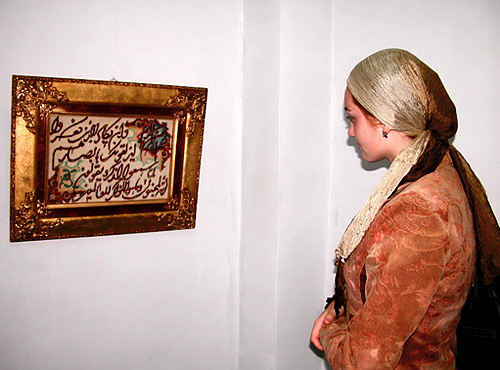
28 September 2010, 22:20
A kadi in Chechnya promised to raise the issue of inadmissibility of compulsion of women to observe Islamic dress-code
A round table conference was held on September, 17, in the district center of Itum-Kale, Chechen republic. It was devoted to the problems of women in Chechnya and arranged by a regional non-governmental organization "Trust" dealing with protection of women's rights. Abu-Said Aziev, kadi of Itum-Kale district participating in the conference declared that no man who was not a woman's relative had a right to admonish on her appearance.
One of the aggrieved women, participant of the round table conference in Itum-Kale, told a story of her and her friend's having been fired upon and confirmed that there had been a great many of similar episodes. A message received by the editorial board of "Caucasian Knot" from "Memorial" Human rights center runs that the participants of the meeting have condemned such incidents.
When asked whether Islam allowed this kind of methods Abu-Said Aziev, kadi of Itum-Kale district, gave a negative answer. Moreover, the kadi said such actions contradicted Vainakh traditions and adats for no strange man had a right to reproach any woman who was not his relative about her appearance.
The kadi expressed his assurance that such methods of providing moral public order were only used by people eager to gain favour with the Head of the republic.
Beside the problem of compulsion of the women to observe Islamic traditional dress-code, some other issues touching upon women's rights in the republic have been discussed.
For instance, after divorce the right of bringing up children often remains the father's privilege, sometimes a woman is not even allowed to see her child. The participants arrived at a conclusion that in case if no agreement between the parents can be achieved it is for the court to decide which of them has the right of upbringing.
Commenting on the issue kadi Abu-Said Aziev explained to the participants that according to Islamic law, the child had to stay with his mother until the age of seven if she wished and after that it was up to the child to choose who he or she would live with. In case the child is being brought up by his mother, his father has the right of meetings with him or her and is obliged to provide the child with all the necessary things.




